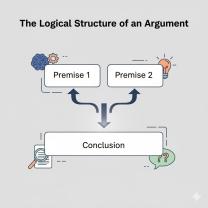Is principles of macroeconomics hard?
The difficulty of Principles of Macroeconomics, like any college course, can vary based on individual factors, including your background, interest, and prior exposure to economic concepts. Additionally, the instructor and the specific curriculum of the course can influence the perceived difficulty.
Here are a few factors to consider:
Background Knowledge: If you have a strong foundation in mathematics, analytical thinking, and a basic understanding of economic principles, you may find the course more manageable. However, even students without a background in economics can successfully navigate introductory courses with the right study habits.
Interest and Engagement: Your level of interest in the subject matter can significantly impact your experience. If you find macroeconomic concepts intriguing and relevant, you may be more motivated to engage with the material and overcome challenges.
Instructor and Teaching Style: The teaching style and methods of the instructor can influence the perceived difficulty of the course. A clear and effective instructor who provides helpful explanations and examples can make the material more accessible.
Study Habits: As with any college course, successful learning often requires effective study habits. Regular attendance, active participation, reading the textbook, and seeking clarification on challenging topics can contribute to understanding.
Principles of Macroeconomics typically covers fundamental concepts such as GDP (Gross Domestic Product), inflation, unemployment, fiscal policy, monetary policy, and the functioning of financial markets. While some students may find certain topics challenging, others may find them intuitive.
If you are concerned about the difficulty of the course, consider the following strategies:
Stay Engaged: Actively participate in class discussions, attend review sessions, and seek clarification when needed.
Use Resources: Take advantage of textbooks, online resources, and additional study materials provided by the instructor.
Study Groups: Collaborating with peers in study groups can provide different perspectives and help clarify concepts.
Seek Help: If you encounter difficulties, don't hesitate to reach out to your instructor, teaching assistants, or tutoring services for assistance.
Remember that college courses are designed to challenge and stimulate intellectual growth. While Principles of Macroeconomics may pose some challenges, many students find it to be a rewarding and valuable learning experience.
What study strategies can make learning principles of macroeconomics easier?
Learning macroeconomics can be challenging, but with the right approach, you can master its principles and gain a valuable understanding of how economies function. Here are some study strategies that can make the process easier and more effective:
Understanding the bigger picture:
- Connect concepts to real-world examples: Look for news articles, case studies, or current events that illustrate the macroeconomic principles you're learning. This helps you see how theory applies in practice and makes the material more relevant.
- Build mental models: Visualize the relationships between different variables and how they interact within the economy. This helps you understand the dynamics at play and predict potential outcomes.
- Think critically: Don't just memorize formulas and equations. Question your assumptions, analyze different perspectives, and develop your own interpretations of economic data and theories.
Active learning and engagement:
- Make connections with other subjects: Relate macroeconomic concepts to history, politics, sociology, and other disciplines to gain a more comprehensive understanding of the big picture.
- Participate in class discussions: Engage with your professor and classmates to clarify doubts, discuss different viewpoints, and gain new insights.
- Form study groups: Collaborate with peers to explain concepts to each other, quiz each other, and work through problems together. This can be a great way to reinforce your understanding and identify areas where you need more practice.
Effective study techniques:
- Review regularly: Don't wait until exams to cram. Regularly review your notes, textbook readings, and lecture slides to solidify your understanding and prevent information overload.
- Use spaced repetition: Tools like flashcards or spaced repetition apps can help you effectively memorize key terms and concepts by systematically reviewing them at increasing intervals.
- Practice problems: Don't shy away from practice problems. Actively applying your knowledge to solve problems and analyze scenarios is crucial for mastering the material.
- Seek help: Don't hesitate to ask your professor, teaching assistant, or classmates for help when you're struggling with a concept. Getting clarification early on can prevent frustration and save you time in the long run.
Additional tips:
- Create study guides: Summarize key points, diagrams, and formulas in your own words to aid memorization and recall.
- Use audio-visual resources: Watch explainer videos, listen to podcasts, or attend online lectures to learn different perspectives and find alternative learning methods that suit your style.
- Take breaks and avoid burnout: Don't overload yourself with studying. Schedule breaks, get enough sleep, and engage in activities you enjoy to stay energized and focused.
Remember, learning macroeconomics takes time and effort. Be patient with yourself, utilize these strategies consistently, and you'll gradually build a strong foundation in this vital field.
I hope this helps! Feel free to ask if you have any questions about specific macroeconomics concepts or need further advice on your study approach.











